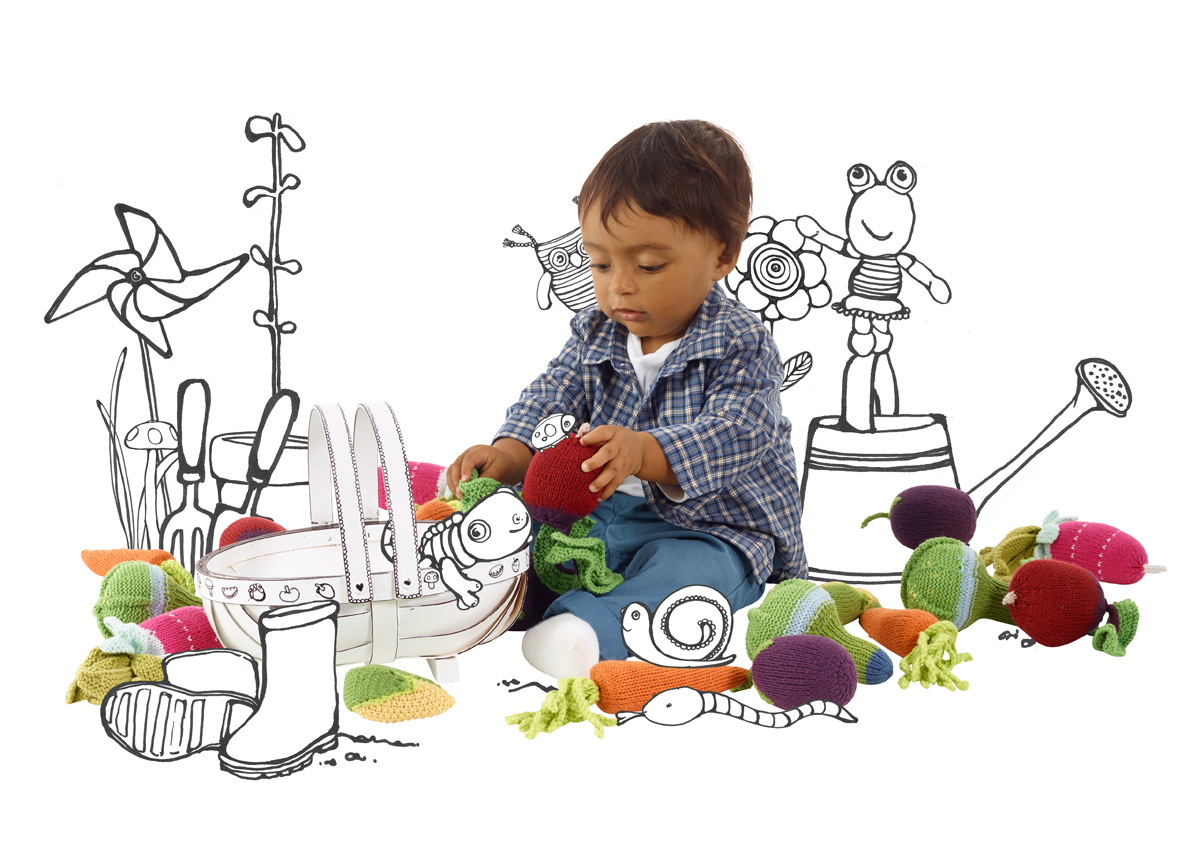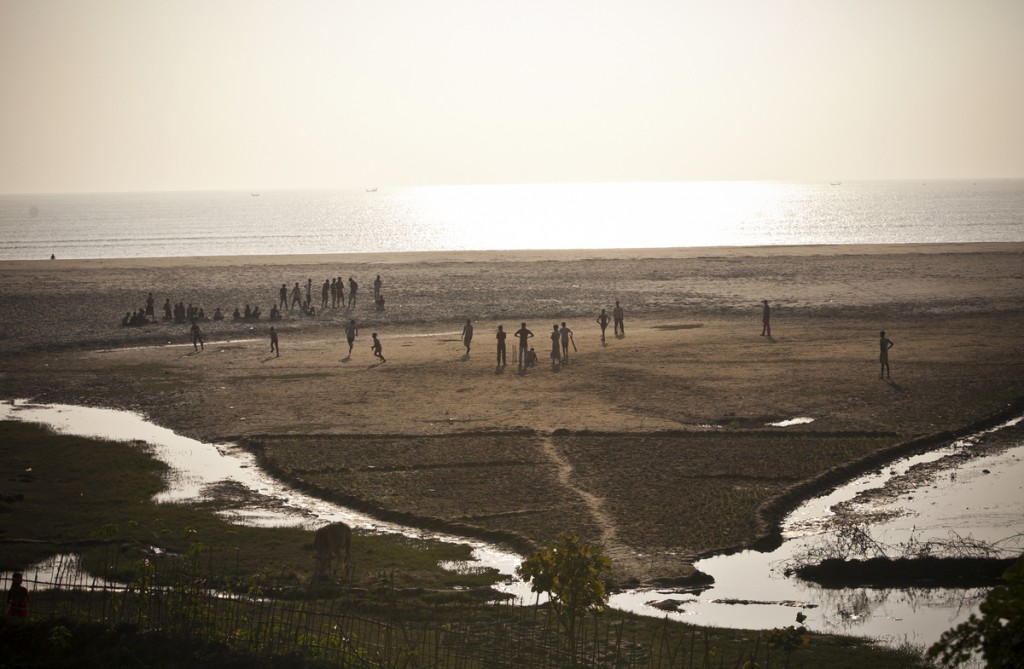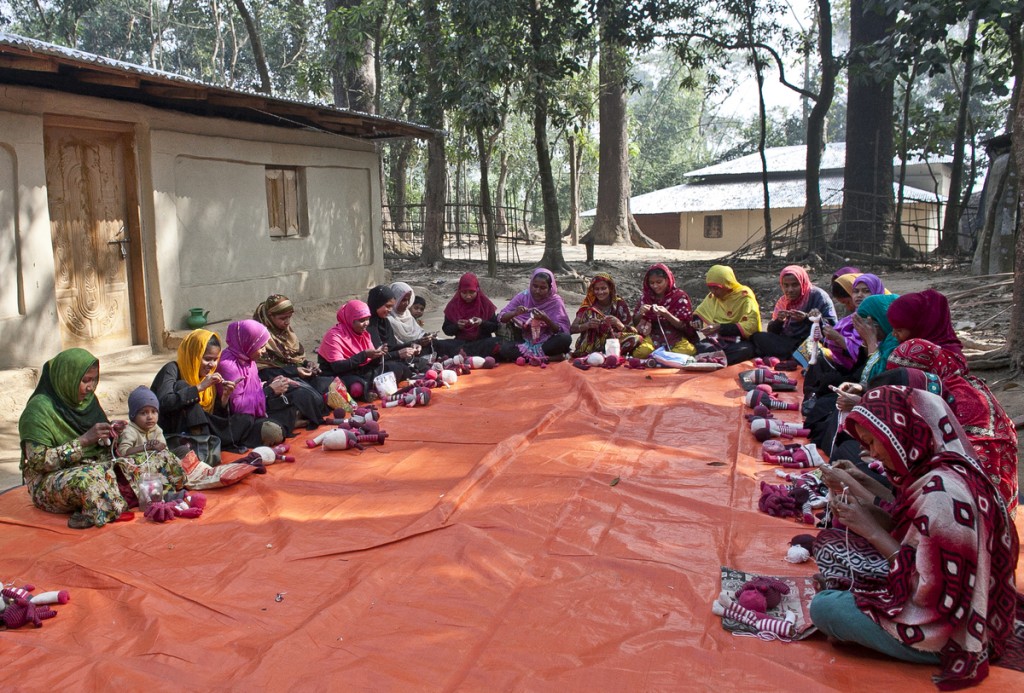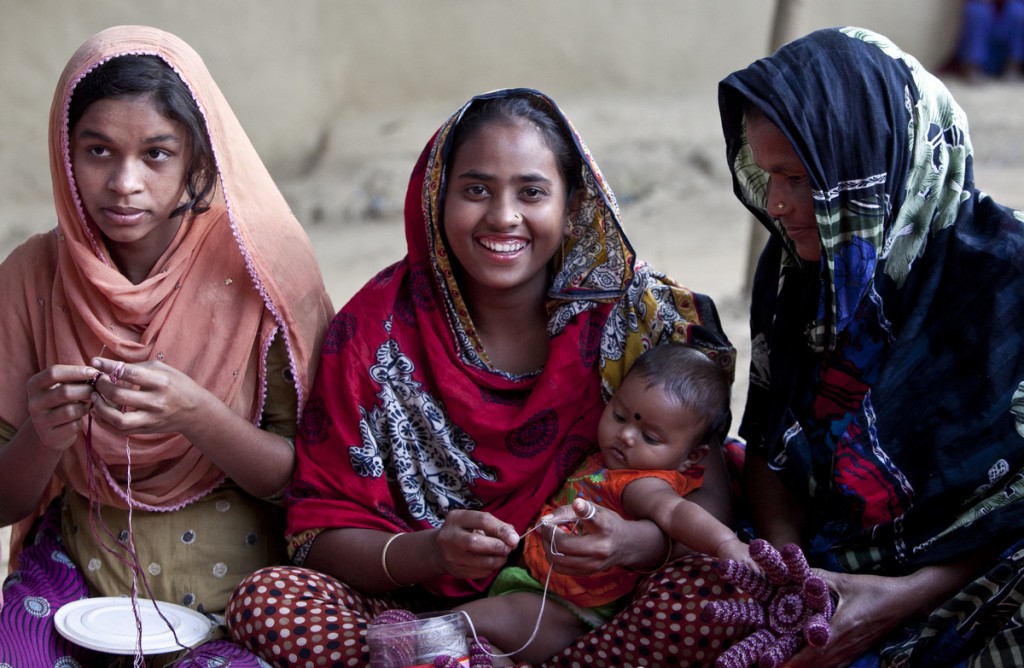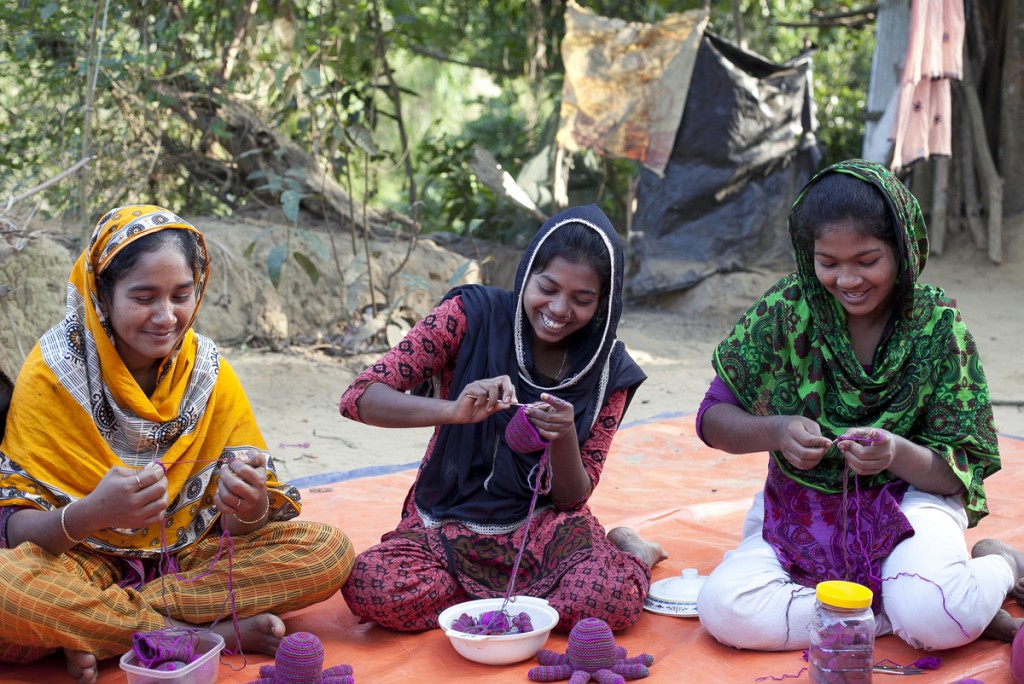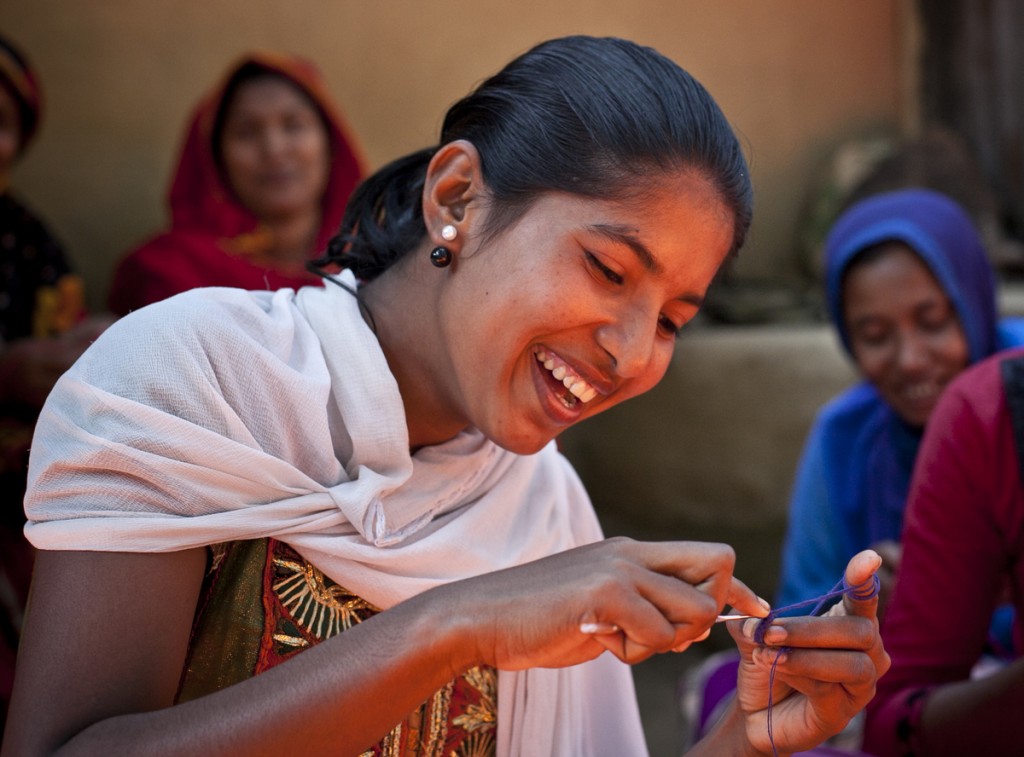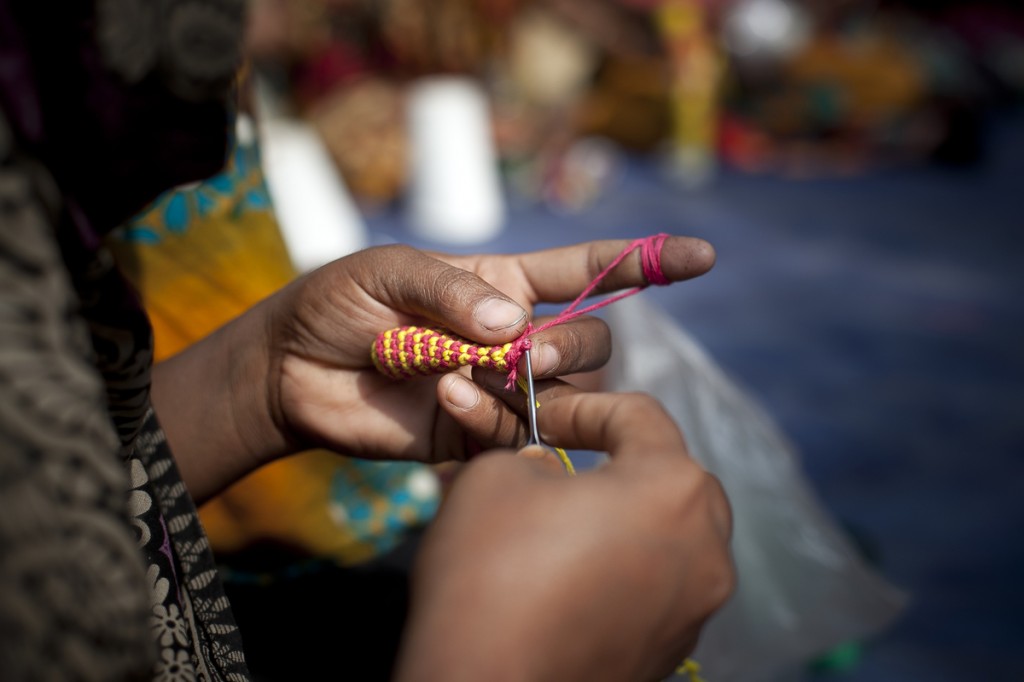9th February 2015
Starting production work in Cox’s Bazar
On 15th December 2014, I wrote a blog about the inauguration of new centres in Cox’s Bazar in collaboration with Winrock International, under the CREL project (Climate Resistant Environment and Livelihoods project) funded by USAID. These centres are now coming to the end of their training and the women are excited to be starting production work and to be able to earn money, so I wanted to update you on some of them.
Cox’s Bazar is home to the longest sandy beach in the world and local tourism is quite healthy there, though we have yet to see international tourism reach Cox’s Bazar. Unfortunately this growth in economic activity is not reaching many of the people in this area and there is great need. To help prevent dependency on the forests and the use of natural resources, we joined forces under the CREL project to provide an alternative livelihood for women in this area.
Image: Cox’s Bazar in Bangladesh is home to the longest sandy beach in the world
It’s always very exciting to see women finishing the training course and be ready to move onto production work. During the training the women become very close and as well as learning the basic skills will learn how to make a number of different products. It’s always nice to see how they help each other to learn.
Image: learning how to may Humpty Dumpty and the rainbow striped bunny at the new Chokoria, Medakossopia Center
The yarn used for training is the same quality as for production work but is different colours so that we can ensure very clearly which products are training products and which are production items.
Image: In the middle, Halima with her baby at the Himsori centre at Sukna Sora
Halima is 20 years old and has one little baby girl (shown in the picture). Before coming to Pebble she had no work and because she has a little baby was not able to find work anywhere. Her husband is a local trader and their family income is small and they have to also support their elderly parents. Halima hopes to be able to save money by making Pebble toys so that they can cope when life doesn’t go to plan.
Image: in the middle is Nur Fatema at the Himsori, Bori Sora centre
Nur Fatema is 18 years old and is not yet married. She is happy to be working making Pebble toys so that she can contribute to her family income. There are six members of her family and they are very poor. Nur Fatema knows that if she contributes to the family income then she will be able to delay her marriage. We see all too often, young girls are given away for marriage because the family can no longer support them financially and they have become a burden. Most young women you speak to in Bangladesh don’t want to get married at a young age but want to wait until they feel ready. By becoming financially independent, Nur Fatema is now able to have a say in decisions that are made about her life.
Image: Ferdousy at the Chokaria, Cha Bagan centre
Ferdousy is 18 years old and is not yet married. She also wants to delay her marriage and continue to study. Her father is a driver and he cannot continue to support her and so Ferdousy is very happy to be able to make Pebble toys so that she can contribute to her family financially and continue to study. We see lots of young women who want to continue to study and who are very intelligent and determined, but so often, cannot afford to continue to study and must either leave the village to go to work in the garments industry or must accept a marriage proposal, in order to relieve the burden on their families. We are excited that Ferdousy will continue her studies while she is working part time making Pebble toys and we hope that she achieves her dream to one day become and accountant.
Image: making Pebble toys in Cox’s Bazar
With this simple combination of cotton yarn and a crochet hook, Hathay Bunano and Pebble are able to bring real hope to the lives of these young women. We see similar stories over again, of women who want to earn enough money to send their children to school, of younger women who want to continue to study themselves, of women who want to delay their marriage but are aware of the financial burden they place on their families. We are excited that these 5 new centres in Cox’s Bazar are all now moving to production work and we hope all the dreams of these young women come true.

